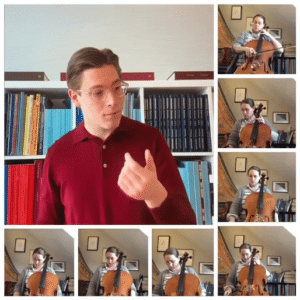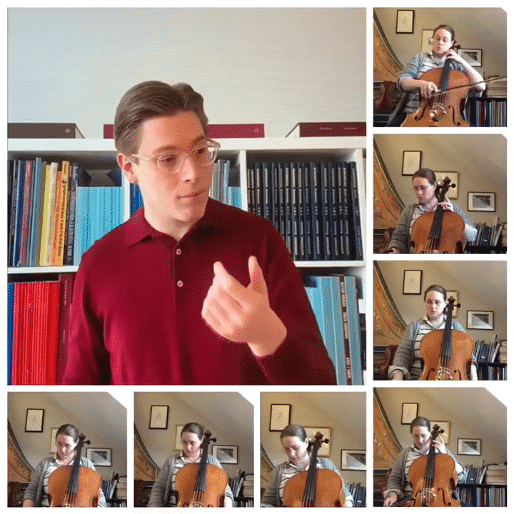How a principal cello keeps her idle conductor occupied
UncategorizedLots of people have been asking what conductors are doing these days and how one keeps them sane.
Louisa Tuck, principal cello of the Oslo Philharmonic, has found a use for hers.
She plays seven parts of the opening of Rossini’s William Tell overture, while Klaus Mäkelä waves his arms, remotely.

So considerate of her.






Comments